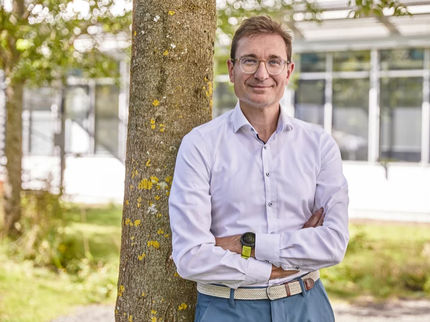Bio solar cell produces hydrogen
Modular character allows multiple applications
An international team of researchers has combined molecular building blocks from plants and microorganisms in a bio solar cell so that they could use light energy to directly produce hydrogen. This combination does not occur like this in nature: although plants can use light energy to convert carbon dioxide into biomass, they cannot produce hydrogen. Some bacteria, however, can produce hydrogen, but not directly using light energy.
“We hope that the combination of these two processes will lead to the sustainable production of hydrogen, a potential energy carrier,” says Associate Professor Dr. Marc Nowaczyk from the Department of Plant Biochemistry at Ruhr-Universität Bochum.
The results are described by a team led by Dr. Erwin Reisner from the University of Cambridge, together with Marc Nowaczyk and Dr. Adrian Ruff from the Bochum-based Center for Electrochemical Sciences.
Building blocks from bacteria
The researchers isolated the highly efficient components for light conversion, called photosystems, from cyanobacteria, which, like plants, can use light as an energy source. They extracted the hydrogen production component – an enzyme called hydrogenase – from bacteria that live in oxygen-poor conditions. They combined these building blocks with redox polymers, which transferred the energy from the light-active elements to an electrode that powered hydrogen production.
“For the first time, we were thus able to develop a bio solar cell that directly generates a chemical energy carrier, in our case hydrogen,” summarises Adrian Ruff.
Components easily replaceable
The modular design of the system makes it easy to replace biological and chemical components so that individual components can be further optimised or replaced by new functions. “Our molecular Lego box offers many possibilities for future applications,” says Marc Nowaczyk. “It would be conceivable, for example, to produce liquid energy carriers based on carbon from climate-damaging carbon dioxide.”
Original publication
Original publication
Katarzyna P. Sokol, William E. Robinson, Julien Warnan, Nikolay Kornienko, Marc M. Nowaczyk, Adrian Ruff, Jenny Z. Zhang & Erwin Reisner; "Bias-free photoelectrochemical water splitting with photosystem II on a dye-sensitized photoanode wired to hydrogenase"; Nature Energy; 2018
Topics
Organizations
Other news from the department science

Get the chemical industry in your inbox
By submitting this form you agree that LUMITOS AG will send you the newsletter(s) selected above by email. Your data will not be passed on to third parties. Your data will be stored and processed in accordance with our data protection regulations. LUMITOS may contact you by email for the purpose of advertising or market and opinion surveys. You can revoke your consent at any time without giving reasons to LUMITOS AG, Ernst-Augustin-Str. 2, 12489 Berlin, Germany or by e-mail at revoke@lumitos.com with effect for the future. In addition, each email contains a link to unsubscribe from the corresponding newsletter.

























































